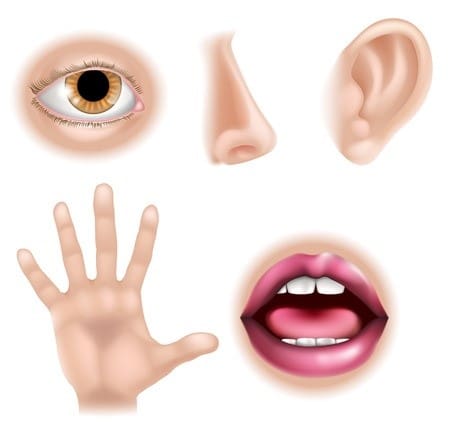In this post
You will find descriptive writing in most written forms. Descriptive writing makes sentences interesting, unique and stand out. It is particularly important to apply descriptive writing techniques to the different forms of narrative writing.
There are a number of skills and techniques that you can use to improve description in your writing. An important skill to have is variety in the language you use. For example, rather than just describing an event as ‘I had a nice time’, you might describe it as ‘I had a pleasant time’ or ‘I had a marvellous time’. Although ‘nice’ might be the first word that comes to mind, understand that using the first word is not always best.
Description requires imagination. You have to be able to imagine yourself at a scene. You need to be able to describe what you can see, hear, smell, touch and taste. If you are writing from a fictional character’s point of view, then you need to be able to put yourself in the shoes of that character, imagine their personality and how this will affect their experiences of different situations and events.
The Five Senses
Using the five senses is an effective descriptive writing technique.
- See: what can you/the character(s) see?
- Hear: what can you/the character(s) hear?
- Smell: what can you/the character(s) smell?
- Touch: what can you/the character(s) feel? This includes what they can physically feel and emotionally feel.
- Taste: what can you/the character(s) taste?

Take note that different characters will experience things entirely differently. No two people are the same and this means that no two characters are either, so you need to think about this in your writing. Let’s imagine that two different characters have been standing on a beach looking out to sea. Both were present at the same time but experienced the situation differently. We are now going to compare how different characters might look at the same situation:
| Character 1 | Character 2 |
|---|---|
| As I stood on the edge of the beach I looked out to the clear open sea and saw the pink sunset sitting delicately over the water. I inhaled a deep breath and filled my lungs with the warm, salty sea air. I listened to the waves gently kissing the edges of the shore and could taste the sea salt on the tip of my tongue. I clenched my bare toes into the warm sand as I took in the adventures that the sea promised. | A huge stretch of dark water laid before me as I stood alone on the edge of the beach. I looked out to an endless stretch of open sea, the scent of the salty sea air was overpowering. I felt dizzy and sick. I felt trapped on that island, with no way to escape. The water surrounded me, encroached me, got under my skin. |

These two views of the same landscape are drastically different and are completely dependent on the individual characters and the effect that you are trying to create with them. As you may have experienced yourself when reading these two extracts, descriptive writing can have strong effects on the reader. When reading character one’s description, it evokes a sense of positivity and calmness but character two’s feels very dark and negative. Make sure you use the correct adjectives and adverbs that fit the intended effect you aim to create.
You do not have to use all of the five senses in your piece of descriptive writing but the more of them you do use, the more descriptive and detailed your writing will be which will result in you obtaining more marks.
Activity
Imagine you are walking into a fairground on bonfire night. Think about what you can see, hear, smell, touch and taste. Consider how you might describe your experience at the fairground that evening. Write out a plan for this task now as this will be one of the activities that you will be assigned at the end of this unit.
(Try and only spend five minutes planning if you can – this will be good preparation for your exam).
Do Not Over-Describe
Believe it or not, writing can sometimes be over-descriptive. When writing a descriptive essay, you need to spend your time describing the most important aspects that are directly related to the question. Like any piece of writing, it needs to have a point to it and this needs to remain consistent throughout. In the exam, you may get asked to ‘Describe your favourite destination that you have been to on holiday’. If this is the case, then describe the specific destination. If asked a question like this, make sure you describe the object, event, place, situation that is being asked. If you begin describing in great detail about what you have had for dinner and it does not relate to the task being asked, it will not gain you any marks.
Adjectives are effective and essential in descriptive writing but be sure not to have too many otherwise your writing can become over-descriptive and it can make it difficult for the reader to stay engaged.
The Difference Between Descriptive Writing and Narrative Writing
Descriptive writing is an essential aspect of narrative writing. If we did not include descriptive language in stories, they would be very dull and many people would probably not read them. ‘Description in Narrative Writing’ will be covered later in this unit.
Although descriptive writing is an essential aspect of narrative writing, narrative writing should be completely avoided in a descriptive writing essay. Again, if you are asked to ‘Describe your favourite destination that you have been to on holiday’, you are therefore not required to tell the story of your holiday, rather to describe your holiday. You can describe the activities you did and places that you went to, but do not write a descriptive essay using the Three Act Structure. It will not have a beginning, middle or an end; it will not have a Plot Point 1 or 2 and it probably will not even be told in chronological order.
Useful Tips:
- It is important to introduce what you are describing before you begin describing it. Do not leave the reader guessing as this could leave them feeling annoyed. However, in certain situations, leaving the reader guessing will be appropriate; for instance, to create tension.
- Does the description have a deeper meaning? A deep meaning = depth = extra marks.
- Sight is arguably the most powerful sense. Therefore, when writing a piece of descriptive writing start with sight. This will quickly engage the reader as they begin to mentally visualise what you are describing.
- Use strong adjectives to illustrate scene, person, object, situation, experience. With good and effective description, you will create a vivid scene.
- In your descriptive writing piece, attempt to describe all of the senses – sometimes this will not always be suitable. For example, if you are asked to ‘describe a journey you have been on’ it may not be appropriate, or you may not get the chance to describe the taste of anything. If this is the case, it will be appropriate to leave out a description of this particular sense.



